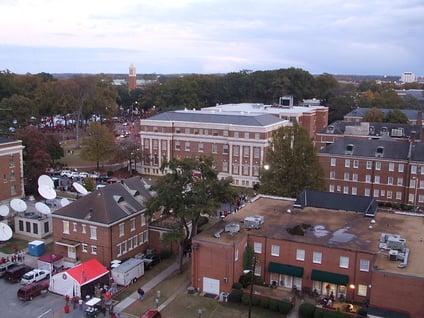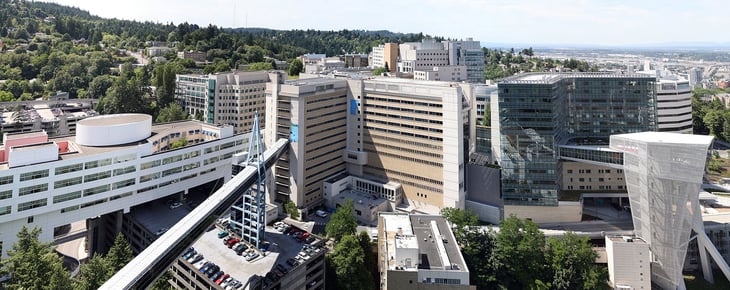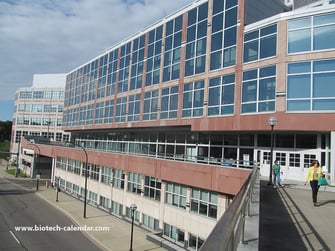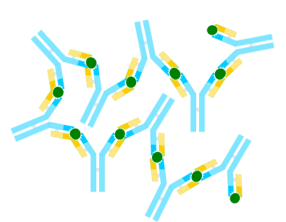(Article posted 2015 and updated in 2016)
Patients with a condition known as lung nodules may soon be breathing a bit more easily, thanks to research funding granted to the University of California, Davis and a new diagnostic technology tested in a 2016 study at the Morehouse School of Medicine and Emory University. Lung nodules are usually benign, small lesions often found in CT chest scans. While only 2% of these nodules end up being cancerous, they still require examination and monitoring to ensure the safety of the patient.
Read More
Tags:
CA,
Emory University,
University of California Davis,
cancer research,
California,
Cancer,
UCDMC,
BioResearch Product Faire Event,
Research Funding,
Sacramento,
Davis,
UC Davis - Medical Center,
research grants,
lung cancer
UC Davis Professor Kit Lam has been awarded two separate federal grants to further his cancer research. The first grant is from the National Institute of Biomedical Imaging and Bioengineering. This 4-year, $2 million grant will fund research on the use of targeted nanotheraputics against oral cancer. The second grant is from the National Cancer Institute. This 3-year, $1.2 million research grant will be used to explore new technology for functional imaging in living cells.
Read More
Tags:
cancer research,
California,
Cancer,
UCDMC,
Research Funding,
UC Davis - Medical Center,
Southwest Region,
research grants,
UC Davis,
UCD,
cancer research grant
According to the American Cancer Society, 1 in 8 American women will develop invasive breast cancer in their lifetime, and each year over 40,000 women die from it. However, thanks to research conducted at the University of Illinois Urbana-Champaign, the number of deaths due to breast cancer may soon be significantly reduced.
Read More
Tags:
breast cancer research,
University of Illinois Urbana-Champaign,
cancer research,
Cancer Treatment,
Cancer,
UI Urbana,
Midwest Region,
UIUC,
cancer therapy
Researchers from UCLA and partnering schools guided by Laurent Bentolila found evidence supporting the spread of malignant cells through angiotropism with vascular co-option, and even suggested they may be related or identical processes. These findings were published in Nature Scientific Reports. With angiotropism being the ability for cells to travel along surface of blood vessels, but not be inside of them, also called extravascular migratory metastasis (EVMM) and vascular co-option being the ability for a tumor to use a blood supply and travel along it, this means cancer has an outlet to spread outside of the bloodstream. The spread outside of the bloodstream means some current methods of treating cancer would be ineffective.
“... if the metastasizing cells are on the outside of the blood vessels, they escape exposure to the treatment and continue to spread cancer.”
-Laurent A. Bentolila
Read More
Tags:
CA,
University of California Los Angeles,
cancer research,
Los Angeles,
Cancer,
LAVS,
UCLA,
laboratory,
lab products,
2016
 (Image courtesy of Wikimedia commons)
(Image courtesy of Wikimedia commons)
University of Alabama at Birmingham received a $29 million grant from the National Cancer Institute. This five year core grant will support six research programs at the UAB Comprehensive Cancer Center. The renewal of the Cancer Center Support Grant, the most prestigious federal grant that a cancer research and treatment program can earn, also extends UAB’s elite “comprehensive” designation. According to the UAB News website this designation is awarded for scientific excellence and the ability to integrate diverse research approaches in the fight against cancer.
Read More
Tags:
Bioresearch funding,
cancer research,
Alabama,
University of Alabama,
Cancer Treatment,
Cancer,
University of Alabama Birmingham,
UAlab,
UAB,
University of Alabama at Birmingham,
Cancer Center,
cancer researchers,
fight cancer,
2016,
cancer reserach,
Bioresearch Grant,
Comprehensive Cancer Center
 (Image courtesy of Cacophony via Wikimedia Commons)
(Image courtesy of Cacophony via Wikimedia Commons)
The Knight Cancer Institute at Oregon Health and Science University, a world-leader in cancer research, recently accomplished raising $1 billion in funding to help support the groundbreaking life science research being conducted at the center.
Read More
Tags:
new research building,
Oregon Health and Science University,
Northwest,
cancer research,
OR,
OHSU,
Portland,
2016,
BioResearch Product Faire,
Western,
Knight Cancer Institute

The Comprehensive Cancer Center at the University of Michigan, Ann Arbor is one of only 45 comprehensive cancer centers in the United States, and provides cutting-edge cancer research. Researchers from 48 different university departments and 9 schools work together in the cancer center to find answers to some of the toughest questions that scientists face when learning about cancer. The university and Cancer Center will soon be expanding their research capabilities thanks to a generous $17.5 million donation from philanthropists Madeline and Sydney Forbes.
Read More
Tags:
University of Michigan,
Midwest,
cancer research,
Ann Arbor,
MI,
UMich,
new funding,
2016,
BioResearch Product Faire,
Comprehensive Cancer Center,
Forbes Institute for Cancer Discovery,
Madeline and Sidney Forbes

Small-cell lung cancer (SCLC) makes up about 10 - 15% of all lung cancer diagnoses, and is caused by smoking and inhaling second-hand smoke. This is an aggressive type of cancer that spreads quickly, and recurs extremely frequently after patients undergo chemotherapy treatments. Treatments for SCLC have not changed much in the past 30 years, but a team of researchers led by the Fred Hutchinson Cancer Research Center in Seattle has been investigating potential new therapy methods for the cancer and recently uncovered a gene that has the potential to be used in biology-based treatments for SCLC. (Image courtesy of Lindsay Fox via Wikimedia Commons and EcigaretteReviewed)
Read More
Tags:
Fred Hutchinson Cancer Research Center,
WA,
cancer research,
Seattle,
Hutch,
2016,
Fred Hutch,
BioResearch Product Faire,
Western,
small-cell lung cancer,
L-Myc,
SCLC
 Antibodies are essential for keeping the body healthy, as they are produced in the immune system and sent to fight harmful substances. Since they are essential for fighting off unwanted antigens in the body, antibodies are a hot topic that researchers are constantly studying. Recently, a research team from Duke University developed an antibody that specifically targets cancer cells, providing a possible new immunotherapy for cancer. (Image of antibody-antigen complex courtesy of Alejandro Porto via Wikimedia Commons)
Antibodies are essential for keeping the body healthy, as they are produced in the immune system and sent to fight harmful substances. Since they are essential for fighting off unwanted antigens in the body, antibodies are a hot topic that researchers are constantly studying. Recently, a research team from Duke University developed an antibody that specifically targets cancer cells, providing a possible new immunotherapy for cancer. (Image of antibody-antigen complex courtesy of Alejandro Porto via Wikimedia Commons)
Read More
Tags:
Duke University,
cancer research,
Durham,
NC,
Duke,
Antibodies,
BioResearch Product Faire,
cancer therapy,
eastern,
CFH
 Researchers around the world are constantly studying ways to create new treatment methods to fight cancer. With so many different forms of cancer, using one treatment method is not always effective for everyone battling this disease. Recently, a team of scientists in Chicago teamed up to create a new treatment method. Researchers from the University of Chicago and the biotechnology company Evelo Biosciences have partnered to develop a new microbiome-based immunotherapy treatment method for fighting cancer.
Researchers around the world are constantly studying ways to create new treatment methods to fight cancer. With so many different forms of cancer, using one treatment method is not always effective for everyone battling this disease. Recently, a team of scientists in Chicago teamed up to create a new treatment method. Researchers from the University of Chicago and the biotechnology company Evelo Biosciences have partnered to develop a new microbiome-based immunotherapy treatment method for fighting cancer.
Read More
Tags:
Midwest,
microbiome,
immunotherapy,
University of Chicago,
cancer research,
Chicago,
Front Line event,
IL,
UChicago,
2016,
BioResearch Product Faire,
cancer therapy,
Evelo Biosciences,
microbiome immunotherapy


 (Image courtesy of
(Image courtesy of 



 Researchers around the world are constantly studying ways to create new treatment methods to fight cancer. With so many different forms of cancer, using one treatment method is not always effective for everyone battling this disease. Recently, a team of scientists in Chicago teamed up to create a new treatment method. Researchers from the
Researchers around the world are constantly studying ways to create new treatment methods to fight cancer. With so many different forms of cancer, using one treatment method is not always effective for everyone battling this disease. Recently, a team of scientists in Chicago teamed up to create a new treatment method. Researchers from the